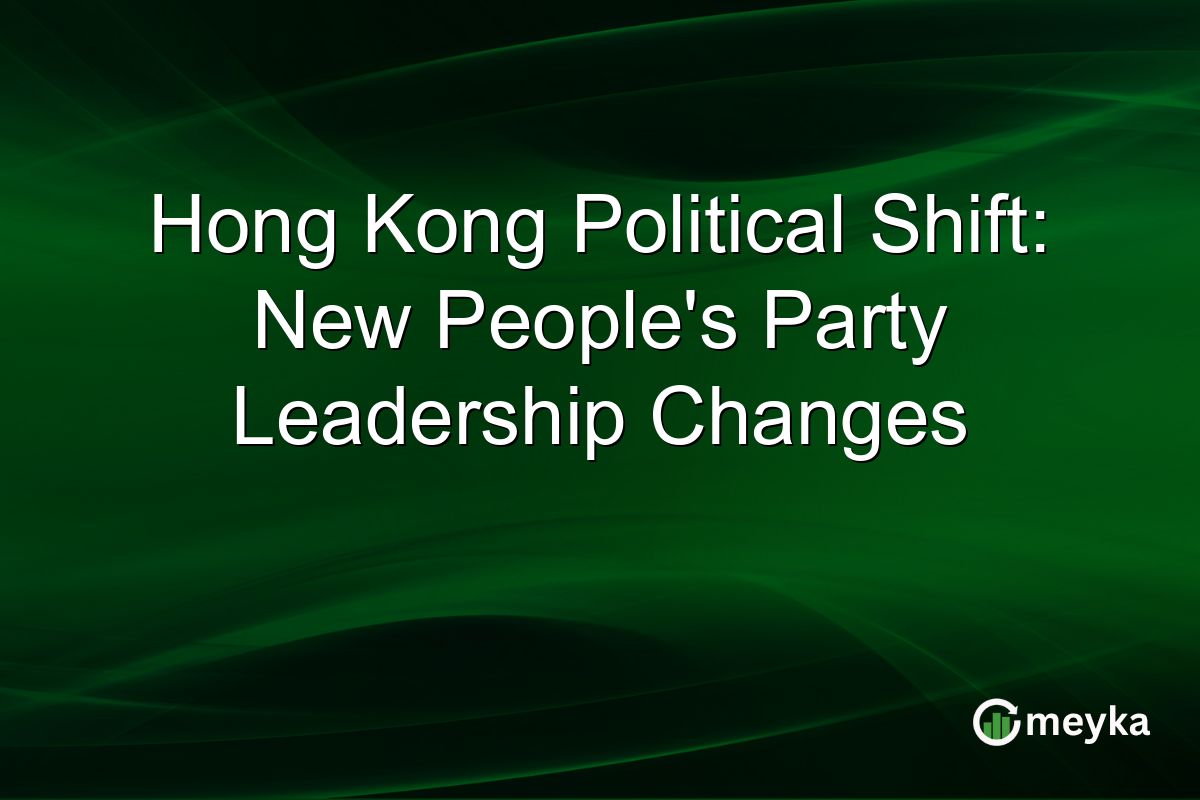Hong Kong Political Shift: New People’s Party Leadership Changes
The New People’s Party in Hong Kong recently announced significant changes in its leadership amidst the active nomination period for the upcoming elections. Established in 2011, the party has been a key player in shaping Hong Kong’s political dynamics. This shift in leadership could influence both the political landscape and voter sentiment as the city gears up for crucial elections.
Understanding the Leadership Transition
The New People’s Party Hong Kong is undergoing a pivotal transition as its leader, Regina Ip, steps down. This leadership change comes at a critical time, just as the nomination period for the elections is in full swing. Ip has been instrumental in the party’s strategies and public image since its inception. Her decision to pass the baton to Executive Council member, Chan Ka-lok, marks a new chapter for the party. This leadership shift aims to rejuvenate the party’s approach and potentially attract younger voters. Link to Facebook post announcement. This transition illustrates the party’s strategic response to evolving political challenges, including a need to align closer with public sentiment.
Implications for Hong Kong Elections
With the leadership change, the New People’s Party aims to strengthen its position ahead of the upcoming Hong Kong elections. The elections are crucial, as they will shape Hong Kong’s governance amidst increasing calls for reform and representation. The party’s new leadership under Chan Ka-lok is expected to bring fresh perspectives and more robust engagement with community issues. This focus may resonate well with a population eager for practical, transparent governance. The shift could sway undecided voters, as Chan’s leadership capitalizes on bridging generational gaps within the electorate.
Potential Impact on Political Landscape
The leadership change could have broader implications for Hong Kong’s overall political scene. The New People’s Party’s maneuver could prompt other parties to reassess their strategies. With a renewed focus on connecting with the electorate, this move might spur similar strategies from competing parties. Aligning closer to constituents’ needs may lead to increasingly contested elections, where public policy effectiveness over rhetoric becomes a stronger vote-determining factor. The broader impact might push Hong Kong politics toward more issue-centric campaigns, as opposed to personality-centric ones prevalent in the past.
Final Thoughts
The leadership transition within the New People’s Party Hong Kong is set to influence the forthcoming elections significantly. By entrusting Chan Ka-lok with leadership, the party hopes to rejuvenate its appeal and address pressing public concerns more effectively. This change signals a potential shift towards more dynamic and responsive political engagement in Hong Kong. Observers and participants alike should watch whether this move fosters a more connected and transparent political atmosphere. For the broader populace, this is an opportunity for greater participation in shaping an accountable governance system.
FAQs
The New People’s Party Hong Kong has seen a change in leadership, with Regina Ip stepping down and Chan Ka-lok taking over. This change is aimed at revitalizing the party’s image and strategy during a crucial election period.
The leadership change could attract younger voters and influence undecided ones, potentially strengthening the New People’s Party’s position ahead of the elections. Chan Ka-lok’s approach is expected to focus on transparency and aligning closer with voter needs.
It signifies a strategic shift to address evolving political challenges and connects more effectively with constituents. This could impact voter sentiment and prompt other parties to reassess their electoral strategies.
Disclaimer:
This is for information only, not financial advice. Always do your research.






